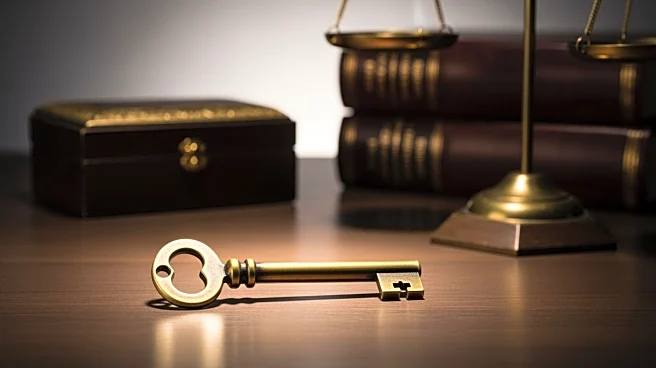What's Happening?
In a recent legislative move to reopen the government, U.S. senators have granted themselves a unique legal power to sue the government, a privilege that some argue should be universal. This development is part of a broader discussion on the role of the judiciary
and legislative powers in the age of President Trump. The legislation has sparked debate over the balance of power and the implications of such a legal privilege being exclusive to senators. Additionally, the Justice Department faced challenges in finding lawyers to handle a lawsuit involving Maurene Comey, highlighting ongoing legal complexities.
Why It's Important?
The decision to grant senators a unique legal power to sue the government raises questions about the separation of powers and the accessibility of legal recourse for other branches of government and the public. This move could set a precedent for future legislative actions, potentially altering the dynamics between the legislative and executive branches. The struggle to find legal representation for high-profile cases, such as Maurene Comey's lawsuit, underscores the challenges within the Justice Department and the broader implications for legal proceedings involving government officials.
What's Next?
The legislative decision may prompt further discussions and potential legal challenges regarding the exclusivity of this power. Stakeholders, including legal experts and political analysts, are likely to scrutinize the implications of this move and its impact on government accountability. The Justice Department may need to address its capacity to handle complex legal cases, potentially leading to reforms or increased resources to manage high-profile lawsuits effectively.
Beyond the Headlines
This development highlights the evolving nature of legislative and judicial interactions in the U.S. political landscape. It raises ethical and legal questions about the concentration of power and the accessibility of legal recourse for different government entities. The situation may influence future legislative strategies and the role of the judiciary in maintaining checks and balances within the government.















